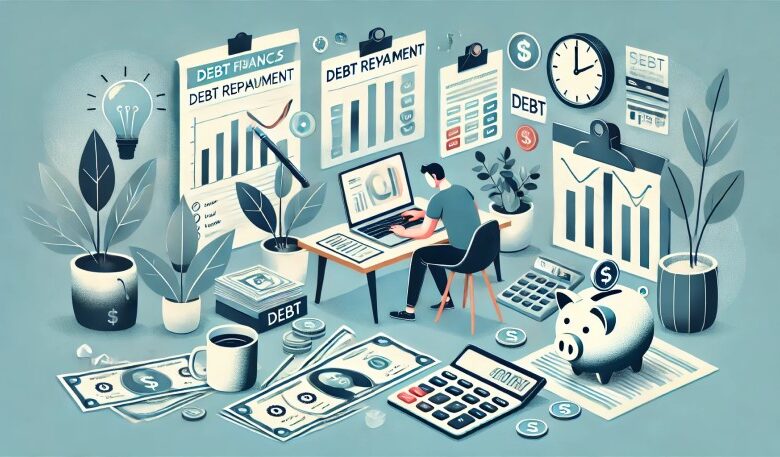How to Take Control of Your Debt and Improve Financial Wellbeing

Going through life with debt hanging over you can be a stressful thing – especially if you don’t feel that you have control over your repayment strategy. When multiple debts are owed to many different creditors, it’s easy to feel overwhelmed. But how might you take control of your debts, and get your financial life in order?
Understanding Your Debt Situation
To begin with, it’s a good idea to get all of your debts out in the open, and ideally down on paper so that you can understand exactly where your money is going. How much do you owe, and to whom? What interest are you paying on each loan, and how much are you required to pay each month?
When you understand exactly where your money is going, you can start to formulate a plan for getting the best from it.
Strategies to Pay Off Debt More Efficiently
Having a plan to pay off your debt can be advantageous. What that plan looks like will depend on your circumstances and financial resources. Two popular approaches are the ‘snowball’ and ‘avalanche’ methods. The first involves prioritising the smallest balances first, while the latter involves paying off the highest interest-rate debts first, regardless of balance. Work out which strategy will save you the most, and pursue it.
You might also seek to negotiate new terms for your debts. This might be in the interest of your creditor, too – after all, they won’t want you to default any more than you do.
Streamlining Payments for Better Financial Control
In some cases, it might be worth bringing your debts together. Debt consolidation loans offer a means of swapping out many different payments for a single, simple one. In many cases, this isn’t just a matter of making your financial life more straightforward. It might also offer you a means of reducing the interest you’re paying.
If you have many different forms of high-interest loan active, like credit cards and overdrafts, then this approach might be what helps you to dig your way out of the hole faster.
Building Better Money Habits for a Debt-Free Future
Staying debt-free isn’t just a matter of paying off your loans. It’s also about building up the habits that will help you avoid falling into bad debt in the future. Don’t spend on a whim, and have a plan for your spare cash each month. If you know that you have a certain amount allocated to restaurant visits, for example, you’ll find it much easier to justify those trips.
Spending wisely, saving, and borrowing only when you have a purpose in mind, is what will help you build up a good credit score. This will help you to avoid high-interest loans in the future!


